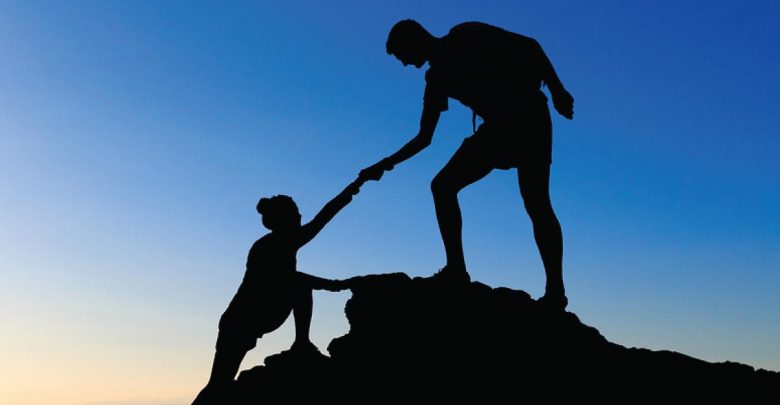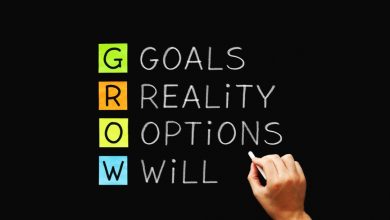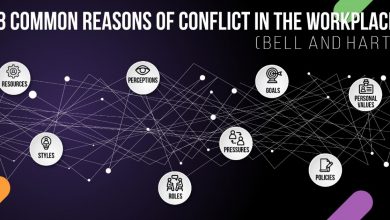Do I dare to be challenged?

Why did I choose this tool?
The previous articles focus on the basic model of the ability to challenge ourselves, the reflections connected to increasing our capacity and stepping out of our comfort zone. This article will focus on what challenges us and what is our response to a variety of challenges. The understanding of our attitude when we are being challenged by others, will not only help to understand ourselves better, but also to understand our teammates, participants and other stakeholders and their reactions. All this should help to improve our relationship with them.
The Program “dry run” is something that I do before each training or exchange. After working remotely for most of the time, the whole team meets in person so we can go through every little detail of the program, go in-depth trough each workshop and talk about the methods, the tools etc. Our logistics team is present there as well, giving input on the logistical matter, coordinating with the trainers about the materials and the timing when they need them. The dissemination team is listening what will happen, what are the goals of the workshop and where they can create the dissemination content for the project. It is the one meeting, where everyone comes on the same page and fine-tune the program. Normally happens on the day before the start of the project and lasts about 24h. We use the opportunity to get to know each other better in order to build the team spirit and (re)create the team dynamics.
However, as trainers, we don’t always work with people that we know. During a 7-day “Guerilla youth work” training course, it was the first time to work with this colleague. Until then, I have heard many good things about him and his training, the capacity, the passion and the expertise he has. We have had several one-on-one and team skype meetings, where we discussed the program, the division of the workshops and the different roles. Each trainer has worked on their own workshops, and during the agenda “dry run” we wanted to harmonize everything and do the final fine-tuning.
As we dived into the program, this trainer started elaborating why we should change the 5th day with the 2nd, that we should push the 3rd to 4th day, switch the afternoon with the morning. After the initial pushback from the rest of the trainers, and as he was elaborating on these changes, my body tension was growing. As my blood pressure was increasing, I could not sit comfortably in the chair and I was seeing the discomfort of the other teammates.
Why is he suggesting all of these changes now? Why did he wait until today? The things that he is saying make sense, but why now when he had the change to do it so much earlier? Is he trying to say something between the lines? My reflection was going parallel – I don’t like improvisation and massive last-minute changes. This approach could bring problems, challenges that we didn’t think of. I have never worked with him before, do I trust his judgement? Will we have challenges with this attitude along with the whole project? What if other things need to be changed? How would the other people react? What if we get into conflicts?
Do you know this feeling?
Being challenged by others
We are unconsciously being challenged every single day, multiple times per day. That’s part of life. But, if you take a piece of paper and you try to make a plan to organize the situations or people, what would be written on that paper?
– Be more environmentally friendly. Use the bike more often and/or go somewhere on foot. Buy less take-out food.
– Because of the crisis many people are behaving unlike themselves – be more compassionate.
– The rules and regulations are limiting and frustrating me, systemic changes are needed in youth work.
– I want to cook more; I feel I have been eating junk food lately.
– There is an organizational mess in this project. Someone needs to step up and take over.
Could you group the private and the professional challenges?
Could you prioritize some of them?
When I reflect on what or who is challenging me as a trainer, apart from myself, these are my reflections:
Global, national or local trends – environmental sustainability who challenges the ways of doing my work and living my life, developments in the youth work field, social and physical distancing are just a few of the global trends that are directly challenging me professionally and personally. When there is an obvious need, I feel not only challenged, but also responsible to address the challenges in my society and adjust my behavior.
Teammates – my teammates have probably the biggest influence on me. We are openly sharing and discussing how to address different kinds of challenges, how to implement different kinds of improvements, but also behaviors that are good or not so good. They challenge me and support my growth at the same time to be more aligned with my values, to be walking the talk and to hold me accountable for the things I do and say. They also point out my mistakes, provide me emotional support and have lots of understanding.
Opportunities – Variety of opportunities where I will definitely get challenged. Signing up for new projects with new technologies, doing a series of webinars, working with a new network of people, having a project where you need to come out with innovative processes. Those opportunities might have ambitious goals that will require to “fill in” my shoes that when I start the project were one, or several sizes bigger. They might lead you to a better financial situation, or better position at work, better recognition in the field, more learning and experience or just simply better job satisfaction.
Other colleagues – working with people means that we meet new ones every single day. As we interact with them, it is unavoidable to see character traits, to see other behaviors that might be something that we would contemplate on. However, those colleagues might ask us or expect us to behave in a certain way, that is out of our comfort zone. That can go from simple – please be more punctual to finish your workshops or make a decision sooner than you would normally do, to more complex – I think I am the least interculturally-aware in this group and I have to improve my game.
Values and principles – change over time. Not quickly and radically, but they do. New ones get added on the list as we have embedded the old ones in our behaviors. We get into a different stage of life, while we get older, more self-aware and experienced, slowly our values rearrange. Becoming a parent or head of your organization will unquestionably change your values and principles, and you might bring new values and principles like loyalty, protection, responsibility, compassion, empathy. You might also start realigning your behavior to fit those principles.
Responding to challenges by others
Every human being is reacting differently to being challenged under different circumstances. We all have a rainbow of reactions that can go from flat out denial to over-exaggeration as a response to a challenge.
For the ones that are more interested to dive into the vast field of behavioral science, there are several concepts and approaches that I found interesting in my exploratory research. Starting from the 5000 years old personality types of the 4 elements – fire, wind, air and water to the 16 personalities is an interesting concept which separates the personalities into 4 groups of analysts, diplomats, sentinels and explorers, who further break down on additional 4 subcategories. More concepts and theories can be found below in the references such as the Belbin theory or the MBTI model.
When we think of responding to challenges, we think of something that we should improve, learn or do. This is completely an individual process. Each of us has different reactions to it, and in order to simplify the many theories that are out there and to come out with something that is applicable and resonates with my working and the organizational environment as a trainer, I came out with the following approaches:
| Denial | I don’t accept that there is a challenge lying ahead of me. |
| Ignore or avoid | I know that there is a challenge, but I decide to ignore or avoid it for various reasons. |
| Procrastinate | I see and understand that there is a challenge, but I decide to delay addressing it. |
| Reject | I see and understand that there is a challenge, but I refuse to do anything about it. |
| Silent resistance | I won’t openly respond in any way and will not do anything or do very little about it. |
| Sloppiness | I recognize and accept the challenge, I will finish and address is quickly, regardless of the quality. |
| Silent compliance | I won’t openly respond in any way, I see what needs to be done and I will do it. |
| Take on and figure it out on the way | I recognize the challenge, and though I don’t know how/what to do, I will figure it out on the way. |
| Emphasis | I recognize the challenge, I put focus and effort into it. |
| Over exaggeration | I overestimate the challenge and its importance; it must be dealt with it immediately. |
There might be a variety of reasons why we would feel challenged and act in a certain way. A variety of situations and their importance, a mix of values and principles and our goals could determent millions of variations that not even the most powerful computer can calculate – why do we respond in such a way to one challenge and in a different way to another. And instead of attempting to decipher that riddle, I would focus on identifying the needed support during the whole period. Having in mind that the challenge persists in order to reach a higher goal, what supportive tools are out there?
Tools for support during challenges
Belief / Confidence – Belief and confidence in others could be a very impactful tool for people to overcome challenges, to learn and to grow. As belief and confidence are mostly connected to one’s expectations, it is crucial to have realistic expectations and adjust them accordingly when necessary.
Support and Compassion – dealing with challenges is largely emotional as much as competence struggle. Offering support and being compassionate makes the relationships healthy, the self-awareness is on a high level and listening to each other will help better understand the situation.
Plan and Accountability – often belief and confidence are not enough. Too much compassion and understanding it might provoke a sloppy, slow, or ineffective response. Therefore, a concrete plan and a measurable accountability could be used as a tool.
How does this apply to being a trainer?
Having an ability to dare to be challenged, will help up increase our potential as trainers and youth workers. Discovering ourselves how we reach in certain challenges, will help us to identify our needs for those situations. Being aware of what kind of needs do we have when we are challenged would help us to be mindful and react accordingly, but also make our team or colleagues aware of how can we be supported during the period and what can they do.
At the same time, we will have the reverse situation as well – how do young people and our coworkers reach when they are challenged and how can we support them as trainers?
This will effectively improve our relationships with everyone around us and contribute to creating a pleasant working environment.
Reflection Questions
– Which events or people are challenging me the most?
– How do I react to various challenges?
– Why do I react in such ways?
– Can I observe how other people react to different challenges? How can I support the process?
– Am I aware of the support that other learners need?
– How do I prefer to be supported when I am challenged?
Exercises
Team exercises and reflections
– Am I aware of which style my teammates respond when they are challenged?
– Am I aware of what challenges my colleagues the most?
– How can we provide more support to each other when taking on challenges?
– How can we be more transparent to each other in terms of our approach to the challenges?
Audio podcast
https://www.youtube.com/watch?v=6HhAJi5gubc&t=918s





